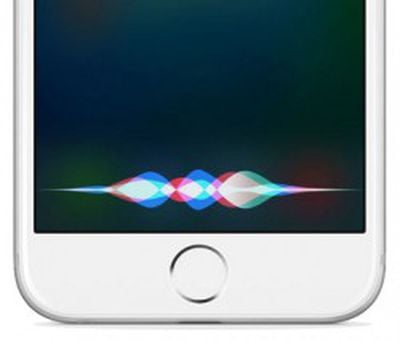 The Verge's Walt Mossberg today wrote a critical article on Apple's Siri personal assistant, exploring the service's shortcomings, mistakes, and inability to answer some simple questions that competing products have no problem with.
The Verge's Walt Mossberg today wrote a critical article on Apple's Siri personal assistant, exploring the service's shortcomings, mistakes, and inability to answer some simple questions that competing products have no problem with.
Entitled, "Why does Siri seem so dumb?", Mossberg's article, covers several questions Siri couldn't answer, ranging from queries about political candidates to the date of the World Series to the weather in Crete. In each instance, Siri failed to provide the desired information, while Google Now, Google's Siri competitor, was able to answer every single question correctly.
In recent weeks, on multiple Apple devices, Siri has been unable to tell me the names of the major party candidates for president and vice president of the United States. Or when they were debating. Or when the Emmy awards show was due to be on. Or the date of the World Series. When I asked it "What is the weather on Crete?" it gave me the weather for Crete, Illinois, a small village which -- while I'm sure it's great -- isn't what most people mean when they ask for the weather on Crete, the famous Greek island.
According to Mossberg, Apple has fixed many of the above Siri shortcomings thanks to his feedback, and has "stressed" to him that the company is "constantly improving Siri." Apple says it focuses more on tasks like placing phone calls, sending texts, and finding places rather than "long tail" questions, which aren't as popular with iPhone and iPad users. Mossberg speculates that such questions aren't popular anymore because people "just give up" on asking Siri these types of things due to failed responses.
Mossberg also outlines several failures with Siri's cloud-based services, from searching through iMessages to locating photos to finding calendar appointments, drawing the conclusion that Apple has "wasted its lead" with Siri, which is now forced to compete with services from Google, Amazon, and Microsoft. Mossberg believes that Siri "seems stagnant" and is "too limited and unreliable" compared to other services.
Though it may not seem like it, Apple has been putting a lot of effort into improving Siri. Back in August, Apple executives Eddy Cue, Craig Federighi, and Phil Schiller explained that machine learning techniques have cut Siri's error rate by a factor of two, improving understanding. Since 2014, Siri and other on-device features, like the QuickType keyboard, Spotlight, autocorrect, Maps, and more, have been powered by a neural net-based system that is able to provide users with more personalized responses and actions.
Recent rumors suggest Apple aiming to improve Siri's functionality even further in an effort to build the personal assistant into an Echo-like Smart home device that would do things like control smart home accessories. Apple is also said to be working on an "Invisible Hand" initiative that would allow users to fully control their devices through a Siri command, something that could debut within three years.
Mossberg's full article on Siri, which is well worth reading, can be accessed over at The Verge.





















